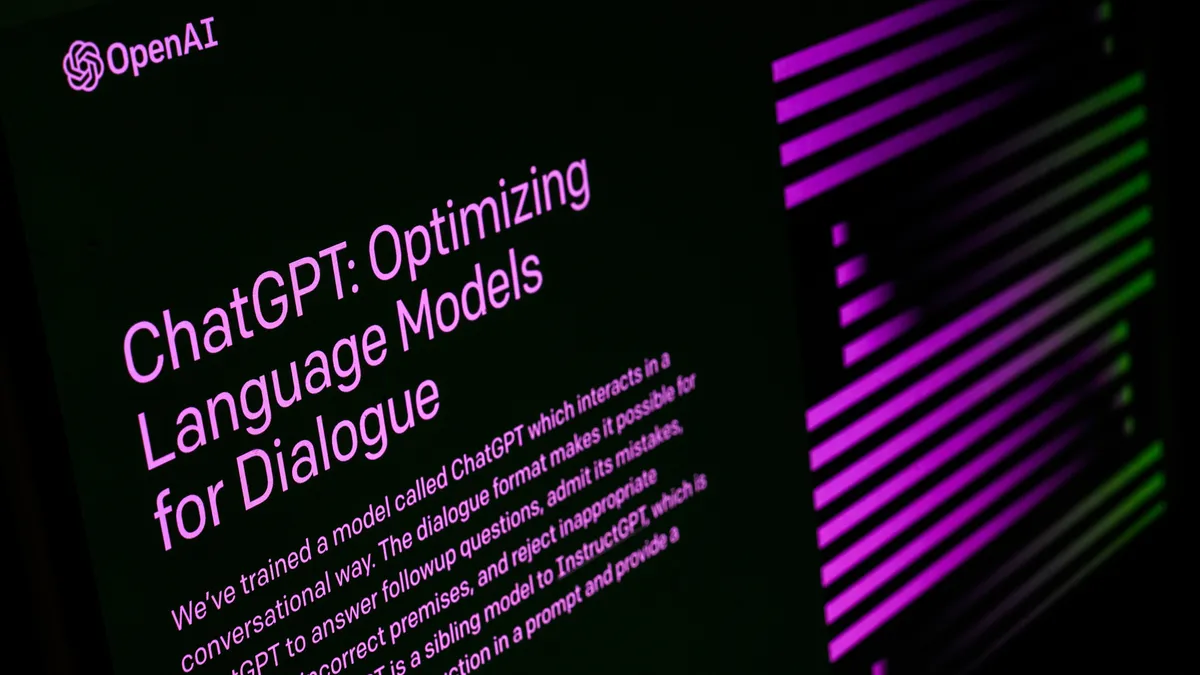Dive Brief:
- Marketing chiefs are expected to ramp up expenditures on talent specializing in generative artificial intelligence (AI) to make their dollars go further, according to the latest forecasts from Gartner’s marketing practice.
- By 2026, 80% of top creative roles will have a bigger mandate around generative AI to realize “differentiated results,” the researcher said. Generative AI’s positioning around boosting productivity will lead creatives to bet on more strategic applications of the technology, including innovation in products and services.
- The fast-emerging field will also result in a 50% or more decrease in organic search traffic to brands by 2028, impacting the ability to drive sales. That shift, coupled with questions over authenticity in an increasingly artificial environment, should spur marketing leaders to invest more in AI guardrails.
Dive Insight:
Generative AI poses a double-edged sword for marketers, as underscored in the latest outlook from Gartner. On the one hand, the ability to automate more processes faster could open the door to fresh creative possibilities and less time spent on marketing busywork. That promise will lead CMOs to seriously increase their spending on AI talent, a trend that could potentially benefit agencies that are quickly building out infrastructure to support the technology.
Agencies have been eager to jump on the generative AI train, anticipating the boom could buoy demand for marketing services. WPP, the world’s largest ad-holding group, earlier this year struck a deal with chipmaker Nvidia around developing a content engine powered by generative AI. Forecasts expect that companies of all stripes will soon bill themselves as AI experts in the same way that many today claim to specialize in digital to the point where the term carries less weight than it once did.
At the same time, the growing prevalence of AI and its association with disinformation will create problems for CMOs and their marketing service providers. By 2027, one-fifth of brands will leverage an absence of AI in their business as a point of differentiation, according to Gartner, looking to meet demands for authenticity.
Seventy-two percent of consumers surveyed by Gartner called out the potential for AI-based platforms to spread false and misleading information, pointing to underlying trust issues. As social media continues to wrestle with bot problems, toxic discourse and fake news, over half of respondents (53%) think the channel has decayed, with 70% believing generative AI integrations could further harm the user experience.
“Mistrust and lack of confidence in AI’s abilities will drive some consumers to seek out AI-free brands and interactions,” said Emily Weiss, senior principal researcher at Gartner’s marketing practice, in the report. “A subsection of brands will shun AI and prioritize more human positioning. This ‘acoustic’ concept will be leveraged to distance brands from perceptions of AI-powered businesses as impersonal and homogeneous.”
By 2026, 60% of marketing chiefs will employ tools like content-authenticating technology and user-generated content to protect against AI-related pitfalls. CMOs will also have to contend with the impact on search as top platforms like Google and Microsoft’s Bing stand up generative AI features that could lower the amount of websites users visit. Among consumers surveyed by Gartner, 79% expect to use AI-enhanced search in the next year and over two-thirds (70%) expressed some level of trust in the results provided by these services.
“Marketing leaders whose brands rely on SEO should consider allocating resources to testing other channels in order to diversify,” said Weiss.















